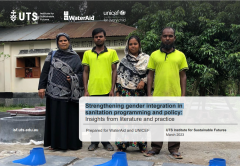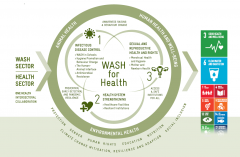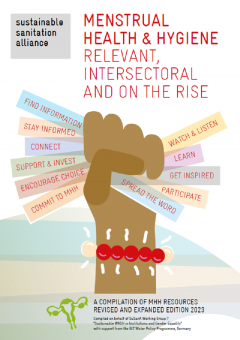 translate page
translate pageGender and WASH (Water, Sanitation, and Hygiene) are two important issues that are intricately connected. WASH is a fundamental human right, as access to clean water, sanitation facilities, and proper hygiene practices are essential for good health and well-being. However, access to WASH is not equal across all genders, with women and girls often facing greater challenges and barriers to accessing these basic needs.
The intersection of gender and WASH is complex and multifaceted. Gender norms and roles often determine who has control over water resources, who is responsible for sanitation and hygiene practices, and who has access to WASH facilities. For example, in many cultures, women and girls are responsible for fetching water, which can be time-consuming and physically demanding, often preventing them from attending school or engaging in other productive activities.
Gender-based violence is also a significant concern in the context of WASH, as lack of privacy and safety in sanitation facilities and water sources can put women and girls at risk. Furthermore, menstrual hygiene management is often neglected in WASH programs, which can have significant health consequences for girls and women.
Menstrual health and hygiene (MHH) is an important aspect of the intersection between gender and WASH. Access to menstrual hygiene products and facilities that support safe and dignified menstrual management is a critical aspect of WASH that affects the health, education, and overall well-being of girls and women. Inadequate access to menstrual hygiene products and facilities can lead to poor menstrual hygiene practices, which can result in infections, skin irritation, and other health issues. In addition, the lack of safe and private facilities for menstrual management can result in girls and women missing school or work, leading to lost opportunities and increased vulnerability.
Addressing gender inequalities in WASH is crucial for achieving the Sustainable Development Goals (SDGs), particularly SDG 5, which focuses on gender equality and empowering all women and girls. It requires a comprehensive and intersectional approach that recognizes the diverse needs and experiences of different genders and promotes their meaningful participation in decision-making processes related to WASH.
2023 - 2025
Village Development Organization (VDO) Ghotki
Upscaling WASH-systems-strengthening in Fragile and Developing Contexts to Achieve SDG 6 in Ghotki
Janu - Sept
Divine Act Charitable Trust
Provide clean & safe water for 1500 women and children
2016 - 2022
Bremen Overseas Research and Development Association (BORDA) & United Nations Environment Programme (UNEP)
Developing Guidelines for Decentralised Wastewater Treatment Systems
Consultation on SANIHUB's new Brief & Checklist 'Gender equality in sanitation and FSM in emergencies'
By Scavill (25.11.2024) , further replies by: Scavill, paresh
(total 4 replies)
Flowing towards equity: Gender, inclusivity and sustainable water management in India and beyond
By lourdesv (08.07.2024) , further replies by: Biswanath,
(total 2 replies)
New paper on unpaid WASH work
By AjitSeshadri (03.11.2024) , further replies by: AjitSeshadri, VanessaCB
(total 4 replies)
New paper on participatory video project in Tasikmalaya, Indonesia
By awebbslh (18.09.2023)

Avni Kumar, Jess MacArthur, Professor Juliet Willetts (2023)
Strengthening gender integration in sanitation programming and policy: Insights from literature and practice

Manolakos, D. and Schmitz, N. (2023)
Discussion Paper on WASH for Health - Prevention is the best medicine (2.0)

Manolakos, D., Schmitz, N., Häberlein, T., Schlenk, J., Monse, B., Panesar, A., Martinez, S., Sommer, M. (2023)
Menstrual Health and Hygiene: Relevant, Intersectoral and on the Rise
Share this page on